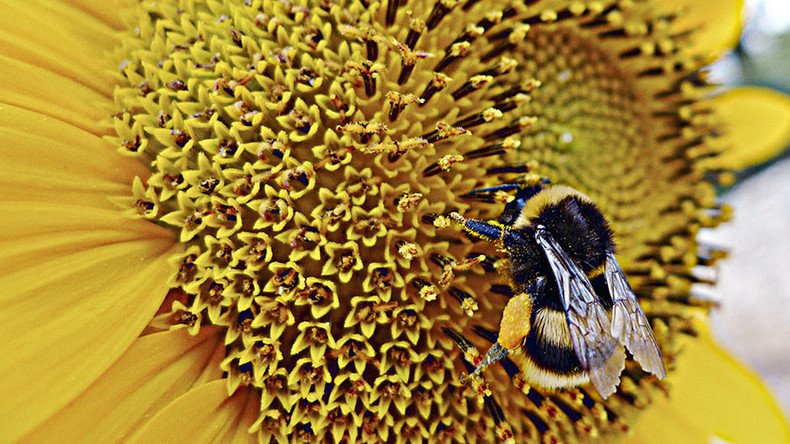Honey offside trap: Bees taught to play football by scientists (VIDEO)

We have been severely underestimating the brain power and capabilities of bumble bees, according to scientists who have taught them how to “play soccer.”
Through a series of experiments the bees were taught to roll a ball into a “goal” to gain a sugary reward, proving, the researchers say, that “many species have the capacity to envision how a particular object might be used to achieve an end.”
The experiment was part of a study, published in the journal Science, by a team at the Queen Mary University of London’s School of Biological and Chemical Sciences.
“Our study puts the final nail in the coffin of the idea that small brains constrain insects to have limited behavioral flexibility and only simple learning abilities," said Professor Lars Chittka, project supervisor and co-author of the paper.
The study also found bees learned quicker by observing a live demonstration featuring a “fake bee,” rather than a “ghost” method in which the ball was moved via a magnet.
The full potential of the bees’ intellectual flexibility came to the forefront when the insects were later presented with three balls and chose to go for the one closest to the goal, or when they were instructed to move a different colored ball to gain the reward.
The impressive cognitive complexity of the insect is promising news for the future of other species and their ability to learn new behaviors if needed.
“Such unprecedented cognitive flexibility hints that entirely novel behaviors could emerge relatively swiftly in species whose lifestyle demands advanced learning abilities, should relevant ecological pressures arise,” says the study.













